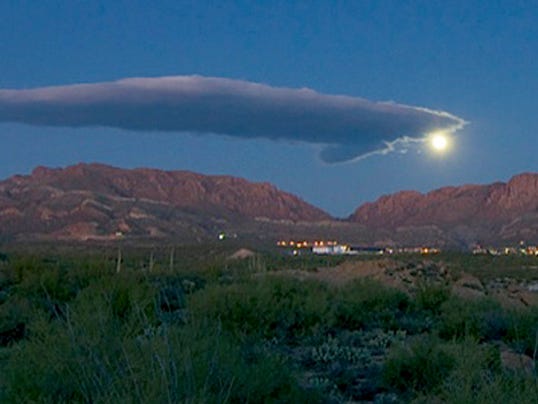By James Anaya, for AZ Central
James Anaya: Rio Tinto should make some lands off limits to mining and abandon the project if it can’t gain local support.

(Photo: Rebecca Allen)
Congress recently authorized an exchange of land so the multinational giant Rio Tinto can proceed with its Resolution Copper Mine project in eastern Arizona. The land to be conveyed to the company was taken from the Apache people more than a century ago, but Apache today continue to claim strong cultural and religious ties to the land.
The congressional authorization can be seen as a victory for the foreign-owned mining company. At the same time, it represents a shameful circumventing of democratic process in the face of environmental concerns and potential violations of the religious and cultural rights of the Apache people.
The San Carlos Apache Tribe, with numerous other Indian tribes across the country, had successfully opposed stand-alone legislation for the land swap because of these fundamental human-rights concerns. Leaders in Superior had voted to revoke support for the mine.
The mining company, however, convinced key members of the Arizona congressional delegation to authorize the land swap through an amendment buried in the must-pass National Defense Appropriations Act.
The new legislation does not make the land swap immediately effective. Several steps will have to be completed, including an extensive process of environmental review and consultations. Still, it makes the land swap and eventual mining appear to be a foregone conclusion.
Proponents of the mine, including Sen. John McCain, have stressed that the project will lead to needed jobs and generate significant economic activity. But whether or not the American people or Arizonans will fairly benefit economically in comparison with what the foreign company will profit remains highly debatable.
In any case, most Americans understand that the prospect of jobs or economic gain for some cannot alone carry the day, lest all those places rich in natural or cultural bounty that have been set aside as national treasures would be at risk.
The owners of the Resolution Mine project, Rio Tinto and BHP Billiton, subscribe to guidelines adopted by the International Council on Mining and Metals establishing, in keeping with United Nations standards, that mining companies should work to obtain the free, prior and informed consent of indigenous peoples and ensure full respect for their rights, as preconditions to the implementation of mining projects that affect them.
Rio Tinto, especially, has worked to follow these guidelines with a number of its projects around the world, building what many human rights and environmental advocates consider to be good practices.
But the land swap authorization for Resolution Mine was not predicated on the San Carlos Apache’s consent or widespread local support. Instead, the congressional authorization came amid continuing disagreement about the environmental and cultural impacts of the land swap and eventual mining, through a truncated legislative process that altogether avoided confronting the points of disagreement.
Any chances of now meeting local concerns and coming to an agreement with the tribe have been severely damaged.
The only way that those chances might be bettered is for the company to make clear it understands that some places, because of their religious or cultural significance or environmental sensitivities, are simply off limits to mining, and to commit to refraining from moving forward with the land swap or any mining without broad local community support and agreement with the tribe.
The company should be prepared to alter its planned land swap and mining activity, or altogether abandon it, if the company cannot obtain the social license that broad local support and agreement with the tribe would provide.
S. James Anaya is a Regents’ Professor at the University of Arizona Rogers College of Law. He served as the United Nations Human Rights Council’s special rapporteur on the rights of indigenous peoples from 2008 to 2014.